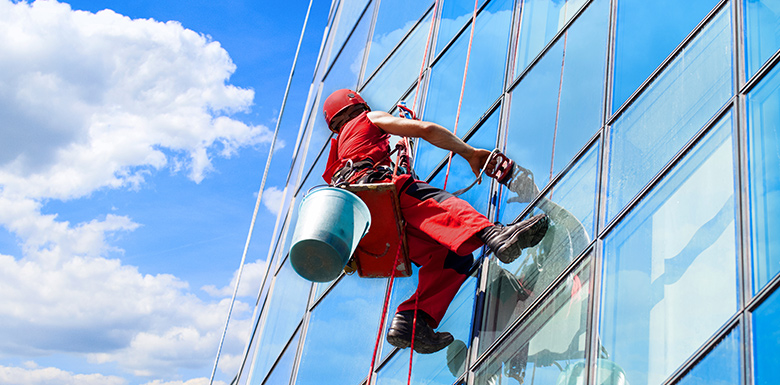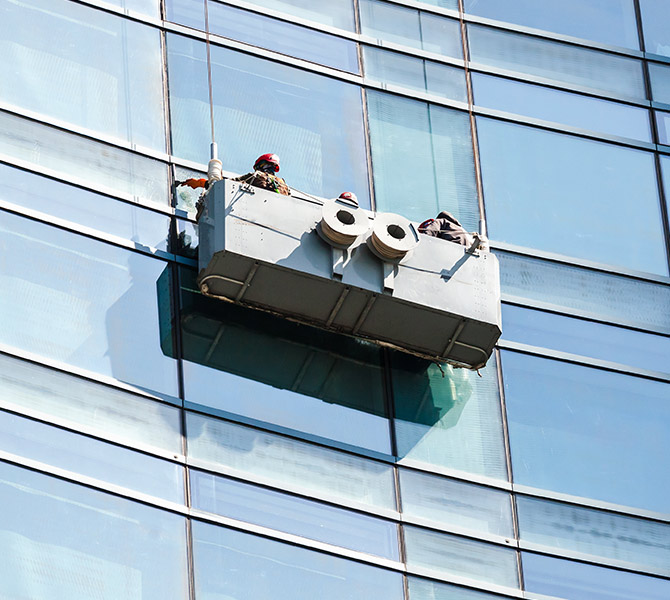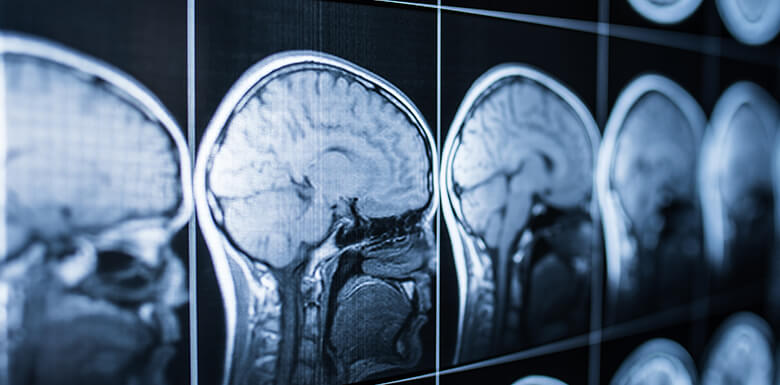Window Washing Accidents in New York City
High-rise window washing in New York City is a common sight, but it is one of the most dangerous jobs in the construction and maintenance industries. Workers often operate hundreds of feet above ground, cleaning the windows of towering skyscrapers that define NYC’s skyline. The risks are magnified by unique local challenges, including the city’s high-rise density, unpredictable weather conditions, and the use of outdated or improperly maintained equipment.
Falls are the leading cause of workplace fatalities nationwide, with the International Window Cleaning Association reporting at least one window washer death annually from skyscraper falls. In densely populated areas like Manhattan, faulty scaffolding or broken safety harnesses can cause catastrophic accidents, endangering both workers and pedestrians.
Understanding these dangers and the legal protections available is vital for injured workers seeking compensation, making it essential to consult a high-rise worker injury attorney in New York to secure justice.
What Causes NY Window Washing Accidents?
Despite strict NY labor laws, negligence, equipment failures, and environmental factors frequently lead to accidents for window washers. Below are the most common causes of window washer accidents and how they contribute to worker injuries.
Scaffolding Collapse & Defective Equipment
Scaffolding accidents remain a leading cause of window washer injuries in NYC, often stemming from worn-out suspension cables, overloading, or manufacturing defects. Even seemingly minor malfunctions can result in catastrophic falls, posing risks to both workers and pedestrians below. For example, a worker might fall when frayed suspension ropes snap, or an improperly secured scaffold could collapse mid-operation, leaving multiple injuries in its wake. Employers and contractors must prioritize routine inspections and maintenance to prevent such incidents.
Equipment Failures
Faulty or poorly maintained safety gear, such as harnesses, safety lines, and guardrails, frequently contributes to window-washing accidents. Employers are obligated to provide functional and compliant protective equipment, yet failures remain common. For instance, a safety harness might detach mid-shift due to a defective clip, or a frayed safety line could snap during routine cleaning, causing a worker to fall several stories. Proper safety protocols and regular equipment checks are essential to reducing these risks.
Unsafe Practices & Lack of Training
A lack of proper training and unsafe work practices significantly increase accident risks for window washers. Inadequately trained workers may mishandle scaffolds or fail to recognize hazards, leading to avoidable injuries. For example, an untrained worker might improperly assemble scaffolding, causing it to collapse, or another could misuse safety ropes during a high-rise job, resulting in a fall. Employers must enforce strict safety protocols and provide comprehensive training to all workers.
Weather-Related Hazards
New York City’s unpredictable weather, including strong winds, icy conditions, and heavy rain, poses unique challenges for high-rise window washers. Despite these risks, tight deadlines often pressure workers to perform in unsafe conditions. For example, strong gusts may destabilize scaffolding, leading to falls, or icy surfaces can prevent workers from properly securing their equipment. Employers must assess weather conditions and implement strict safety protocols to minimize these hazards.
Falling Objects & Pedestrian Hazards
Falling tools, buckets, or other equipment can cause severe injuries to pedestrians and workers alike. Improperly secured items on scaffolding or work platforms create risks for anyone below. For instance, a dropped bucket might cause traumatic injuries to a pedestrian walking under a high-rise or damage vital scaffolding components. Employers must enforce strict guidelines to secure all equipment and protect bystanders.
Weight Limit Violations
Exceeding the weight limits of scaffolds or equipment is a frequent cause of accidents in high-rise window washing. Overloaded platforms may collapse, leading to falls and injuries. For instance, a worker might be injured when an improperly loaded scaffold gives way, or a platform collapses under the combined weight of workers and cleaning supplies. Adhering to weight guidelines and routine load assessments can mitigate these risks.
Common NYC Window Washing Injuries
Window-washing accidents often result in severe, life-changing injuries that impact not only the physical well-being of workers but also their emotional and financial stability. High-rise work and the inherent risks of faulty equipment and hazardous conditions make these injuries particularly devastating. Below are the most common injuries suffered by NYC window washers:
- Traumatic Brain Injuries (TBI): Falls from great heights can result in significant head trauma, ranging from concussions to severe brain injuries. These injuries often lead to cognitive impairments, memory loss, and long-term disabilities, requiring extensive medical care and rehabilitation.
- Spinal Cord & Back Injuries: Falling from scaffolding or ladders can cause spinal cord damage, potentially resulting in partial or complete paralysis. Even less severe back injuries, such as herniated discs or fractures, can lead to chronic pain and limited mobility.
- Fractures & Broken Bones: The impact from a fall or being struck by falling objects often causes broken arms, legs, ribs, or pelvis fractures. These injuries may require surgery, physical therapy, and prolonged recovery periods.
- Lacerations & Soft Tissue Damage: Falling through glass, being struck by sharp objects, or accidents involving malfunctioning equipment can cause deep cuts, torn ligaments, and severe bruising. These injuries can lead to infection or scarring if not promptly treated.
- Internal Organ Damage: High-impact falls often result in damage to internal organs, including ruptured spleens, punctured lungs, or internal bleeding. These injuries are life-threatening and typically require immediate surgical intervention.
- Electrocution & Electrical Burns: Window washers working near power lines are at risk of electrocution. Electrical accidents can cause severe burns, nerve damage, and, in some cases, cardiac arrest.
- Eye & Face Injuries: Falling debris, exposure to cleaning chemicals, or shattered glass can lead to severe facial lacerations or eye injuries, potentially resulting in partial or total vision loss.
- Exposure to Hazardous Chemicals: Cleaning agents used for high-rise windows often contain harmful substances. Inhaling fumes or accidental skin contact can cause respiratory issues, chemical burns, or poisoning.
These injuries often require extensive medical treatment, long-term rehab, and financial difficulties. For injured workers, consulting a skilled NYC window-washing accident lawyer can be critical in securing compensation for medical expenses, lost income, and pain and suffering.

Legal Protections for NY Window Washers
New York State provides robust legal protections for window washers. These laws aim to ensure worker safety, especially for those performing high-risk jobs like window washing, and hold negligent parties accountable when accidents occur.
- Labor Law §202 – Often referred to as the “Window Washer Statute,” this law mandates that building owners, lessees, agents, managers, and contractors provide proper safety measures for window cleaning. This includes ensuring workers have access to approved safety equipment, such as scaffolds, harnesses, and other protective devices. Failing to adhere to these requirements can make these parties strictly liable for injuries sustained by workers.
- Labor Law §240(1) (Scaffold Law) – This law offers additional protections for workers injured in elevation-related accidents, such as falls from scaffolds, ladders, or other elevated platforms. It places strict liability on property owners and contractors to provide and maintain safe equipment. Even if the worker is partially at fault, these parties can still be held accountable under the Scaffold Law, ensuring injured workers can seek compensation for medical expenses, lost wages, and pain and suffering
Both statutes are designed to safeguard workers from preventable accidents and provide legal avenues to hold negligent parties responsible. These protections are especially critical in New York City, where the high density of skyscrapers and unpredictable weather amplifies the risks for window washers.
What to Do After a NY Window Washing Accident?
Taking immediate action after a window-washing accident is critical to safeguarding your health, protecting your rights, and building a strong case for compensation. Whether you’ve been injured or lost a loved one in a tragic accident, these steps can help:
- Seek Medical Attention – Your health should always come first. Even if your injuries seem minor, seek medical care immediately to ensure proper treatment and to document your injuries. Medical records play a critical role in connecting your injuries to the accident, which is essential for workers’ compensation and personal injury claims.
- Report the Accident – Notify your employer or supervisor as soon as possible. Failing to report a workplace injury within 30 days in New York could jeopardize your workers’ compensation claim. Be specific when reporting the details of the incident.
- Gather Evidence – Collect as much information as you can about the accident. Take photos of the scene, safety violations, equipment failures, and injuries. If there were witnesses, ask for their contact information and statements, which can be crucial during legal proceedings.
- Document Expenses – Keep a detailed record of all accident-related costs, including medical bills, lost wages, and transportation expenses. This documentation will help determine the total value of your claim and ensure you pursue appropriate compensation.
- Consult an Experienced Window Washing Accident Attorney – An experienced NYC window-washing accident lawyer can evaluate your case, identify negligent parties, and guide you through the legal process to maximize your compensation. They can also advise you on whether a third-party claim, such as against a building owner or equipment manufacturer, is an option.
What If a Loved One Was Killed in a Window Washing Accident?
Losing a loved one in a window-washing accident is a devastating experience. Families may be entitled to file a wrongful death claim to seek justice and compensation for their loss. This can include covering funeral expenses, lost income, and the emotional toll of losing a family member.
Consulting an experienced attorney is vital to understanding your rights, navigating the legal process, and holding negligent parties accountable.
Tell Us What Happened
"*" indicates required fields



